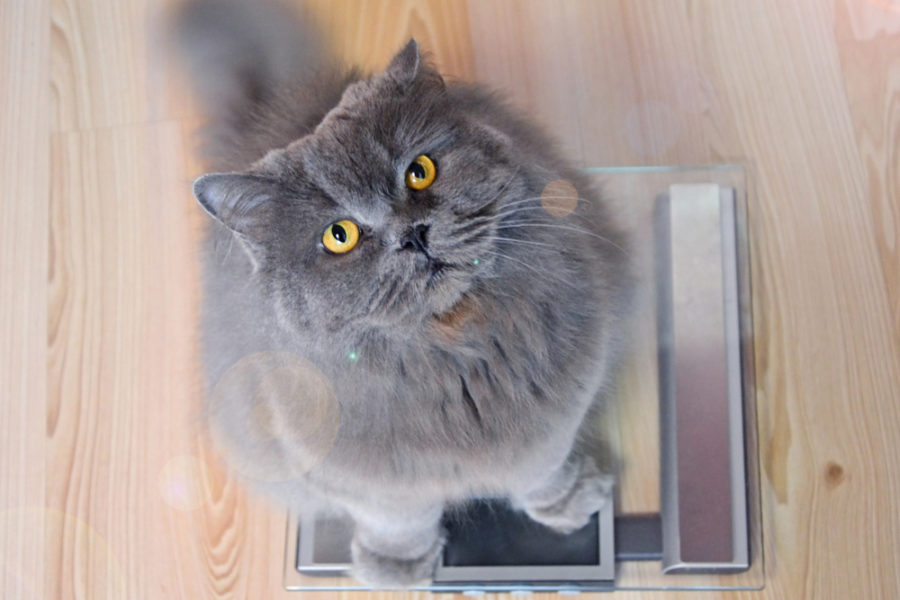A new study reveals that cats are fatter now than they were 20 years ago, and it’s negatively affecting their health and well-being.
New research conducted at the Ontario Veterinary College at the University of Guelph shows that obesity in cats is much more of a concern now than it was in the 1990s. The research team analyzed weight measurements taken from over 19 million cats across North America between 1981 and 2016, and observed weight gain and loss patterns over the course of cats’ lives.
The findings, published in the Journal of the American Veterinary Medical Association, reveals that most of the cats continued to put on weight once they reached adulthood, and that their heaviest mean weight is higher now than it was two decades ago. In other words, cats are continuing to get fatter as time wears on.
The data also showed that:
- The cats’ mean weight reached its peak between six and ten years of age
- Males generally hit higher weight peaks than females
- Cats that were spayed or neutered tended to be heavier
- The mean weight of neutered eight-year-old domestic cats increased by approximately ¼ kg between 1995 and 2005 and then remained steady for the next ten years.
“It might not seem like much, but half a pound is still a significant amount for a cat,” says lead study author, Adam Campigotto.
Though the study didn’t look at what caused the weight gain, Campigotto suggests it might have to do with changes in cat parents’ feeding behaviors over time, improved palatability of cat food, or the fact that more people have begun to keep their cats indoors.
“Treats can have a big impact on weight, and often people associate giving treats as a kind of love,” Campigotto adds.
If you’re worried about your own cat’s weight, cut back on the treats you’re feeding him and replace that form of affection with quality time. Boredom can also lead to overeating, so engage him in interactive play and make sure he’s getting enough exercise and mental stimulation.
Theresa Bernardo, a professor at the Ontario Veterinary College and one of the co-authors of the study, also suggests that cat parents weigh their felines at home if it’s not being done regularly at the vet clinic. Because weight changes may be linked to other health issues such as diabetes, some cancers and arthritis, it’s important to monitor your cat’s weight closely.








